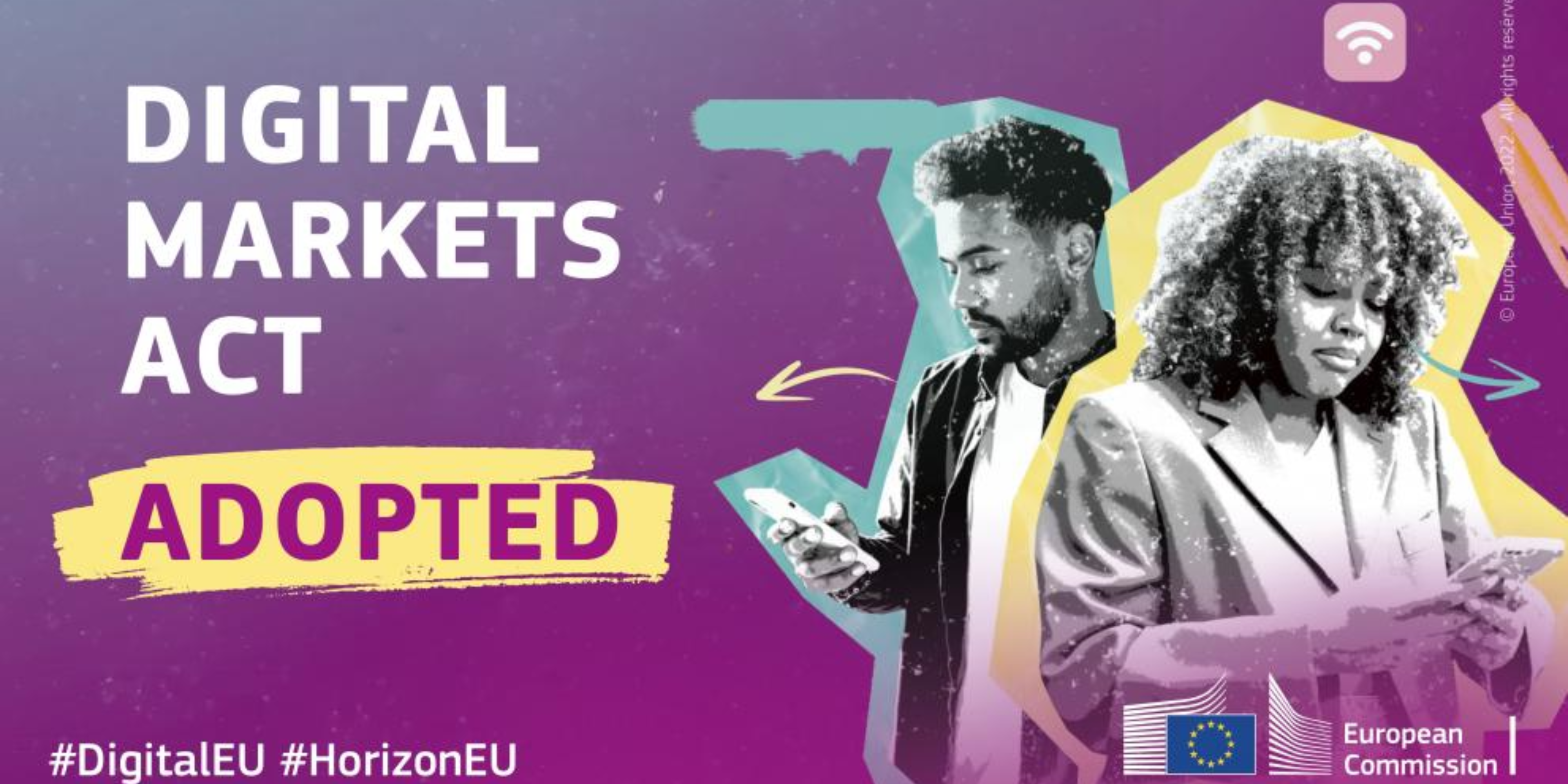The Council of the EU adopted the Digital Markets Act (DMA). It marks an important step forward in defining new rules for online platforms.
Its main goals are:
- Create a safer digital space in which the fundamental rights of all users of digital services are protected.
- Establish a level playing field to foster innovation, growth, and competitiveness, both in the European Single Market and globally.
These new rules will begin to apply across the EU, creating a safer and more open digital space, six months after the publication in the Official Journal of the European Union. The other crucial part of the Digital Services Package – the Digital Services Act (DSA) is expected to be adopted by the Council in September 2022.
HaDEA is implementing the current EU’s digital programmes: the Digital Europe Programme, the Connecting Europe Facility – Digital and Horizon Europe Cluster 4.
Under the predecessor programme Horizon 2020, there are several EU funded projects in the domains of the Digital Services Package.
Horizon 2020 funded research projects
- SOMA: to counter disinformation, the EU-funded SOMA project shed light on the social media dynamics and social media’s relationship with other sectors. SOMA has created a platform for collaborative verification, where all experts work together to tackle disinformation. The project also developed different functionalities that provide an easy communication channel with official sources such as the European Parliament, the European Commission and Eurostat.
- SocialTruth: also counters disinformation by enabling easy access to various digital content verification services, ensuring scalability and establishing trust in a decentralised environment. Among the project’s outcomes are the ‘Expert Meta-Verification Engines’, the ‘Digital Companion’ (an easy-to-use browser plugin allowing a non-professional user to access meta-verification functionality) and the ‘Meta-verification Toolkit’(an integrated management environment of the verification services).
- HELIOS: has created a new federated social media network to facilitate democratisation, promotion and monetisation of content production. HELIOS also aims to reduce the development cost and deployment complexity of any social media application built on top of it.
- PROVENANCE: has developed a verification indicator tool that evaluates online content and provides contextual information to users. The project helps citizens navigate content and develop digital literacy competencies as they browse the web and social media. It improves their ability to identify disinformation and assess the credibility of content. PROVENANCE specialises in different innovation areas and targets a wide range of markets: media literacy, social networks and brands.
- ARTICONF: has delivered a trustworthy, resilient and sustainable decentralised social media ecosystem based on a set of open source microservices powered by blockchain technology. The project outcomes are being deployed and used in a wide spectrum of areas, from video reviews to car sharing.
Background
The Digital Markets Act contributes to one of the six objectives of the Von der Leyen Commission: A Europe fit for the digital age.
Horizon Europe is the research and innovation programme of the EU for the period 2021-2027. Cluster 4 focuses on Digital, Industry, and Space and aims to deliver on the following six destinations matching the Strategic Plan: Climate-neutral, circular, and digitised production. Increased autonomy in key strategic value chains for resilient industry.
Horizon 2020 (H2020) was the EU’s multiannual funding programme between 2014 and 2020. H2020 provided Research and Innovation (R&I) funding for multi-national collaboration projects alongside individual researchers and SMEs via special funding instruments. Horizon 2020 was replaced by the Horizon Europe Programme which will run until 2027.
Source: European Commission I HADEA (https://bit.ly/3PjHdxb)
